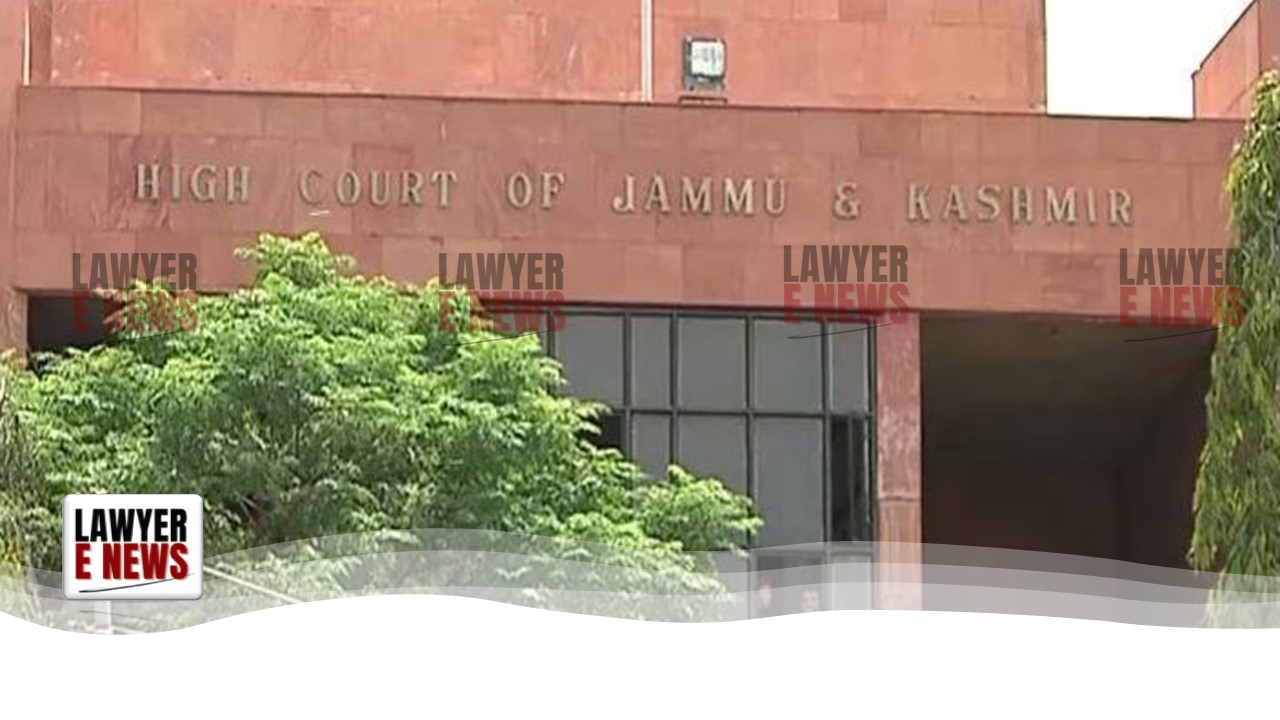-
by Admin
15 February 2026 5:35 AM



The High Court of Jammu & Kashmir and Ladakh, on October 9, 2024, dismissed petitions filed by the J&K State Forest Corporation challenging the execution of a decree in favor of Sher Singh, a contractor. The Court ruled that the objections raised by the Forest Corporation regarding the validity of the decree, including lack of pecuniary jurisdiction, were not maintainable as they were not raised at the appropriate stage.
The Court held that objections regarding the pecuniary jurisdiction of the trial court, which issued a decree awarding ₹3,50,550 along with interest and the release of a security deposit, should have been raised during the trial. Since the Forest Corporation did not object at the trial stage, they could not challenge the decree during execution.
Sher Singh, a contractor, had filed a suit against the J&K State Forest Corporation in 1994, seeking relief related to the extension of a timber felling contract and payment for completed work. The trial court decreed the suit ex parte in 2009, awarding Singh ₹3,50,550 plus interest at 9% from October 1993, along with the release of a security deposit worth ₹50,000. After the decree was passed, Singh filed an execution application, which the Forest Corporation contested, citing the trial court’s lack of pecuniary jurisdiction and procedural errors.
The corporation further sought to set aside the decree on grounds of improper valuation and lack of jurisdiction, arguing that the trial court had awarded more than it was competent to.
The primary legal issue was whether the Forest Corporation’s objections regarding the trial court's pecuniary jurisdiction could be entertained during the execution stage. The Forest Corporation argued that the decree was a nullity because the trial court lacked jurisdiction to award the amount.
However, the Court ruled that objections to pecuniary jurisdiction must be raised at the earliest opportunity, as outlined in Section 21 of the Civil Procedure Code. Since the corporation did not raise these objections during the trial, it was precluded from raising them during the execution of the decree.
The Court upheld the validity of the decree passed by the trial court and dismissed the petitions filed by the J&K State Forest Corporation. The Court also clarified that the Forest Corporation still had the option to pursue an alternative remedy, such as an appeal, but ruled that the petitions under Article 227 were not maintainable. The Forest Corporation was further directed to ensure payment of the court fees on the decretal amount.
This judgment underscores the importance of timely objections regarding jurisdictional issues. The ruling reaffirms that challenges to a trial court’s jurisdiction must be raised during the trial itself and not during the execution stage.
Date of Decision: October 9, 2024.
J&K State Forest Corporation vs. Sher Singh S/o Sh. Sham Lal
